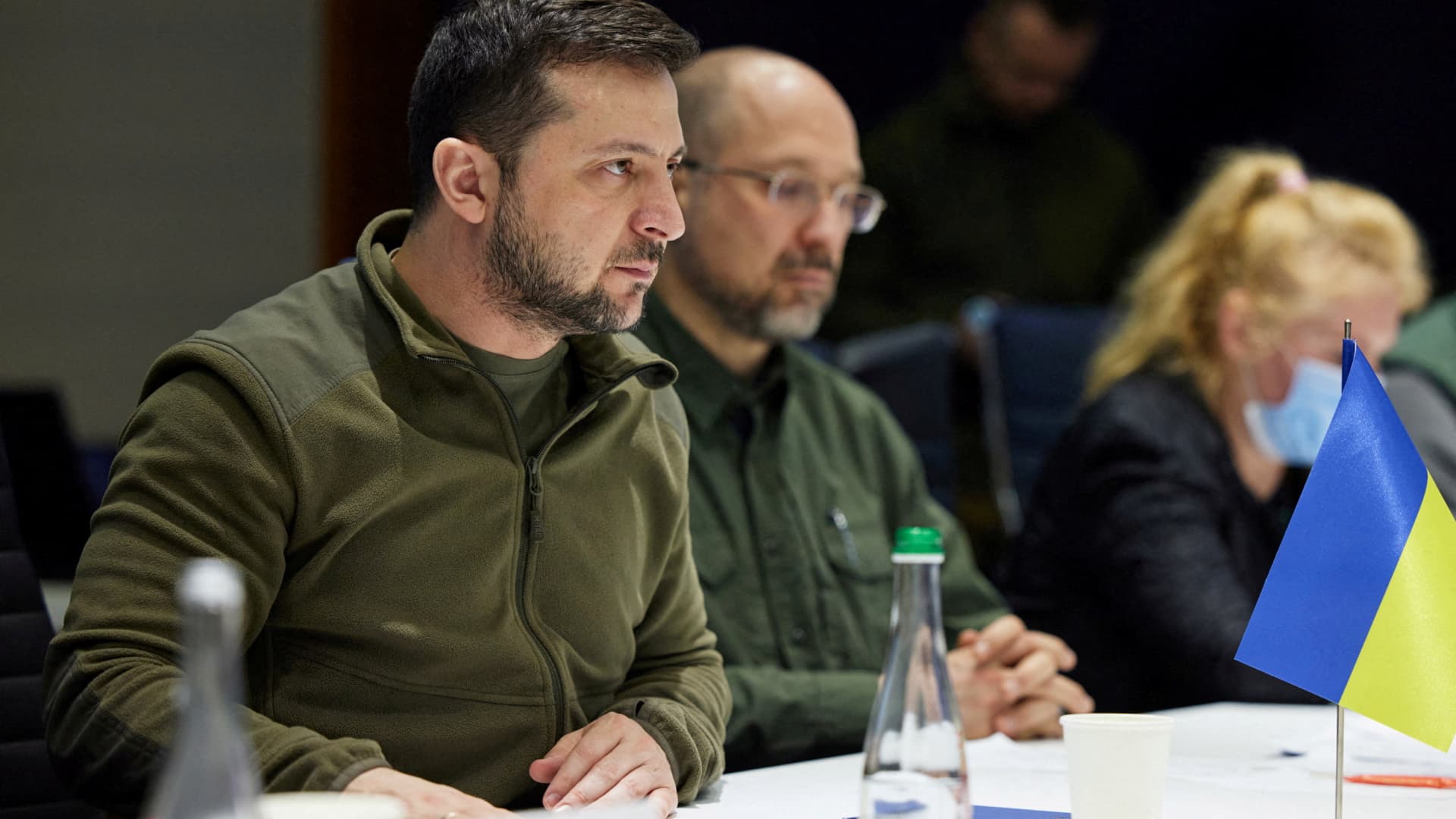One of Ukraine’s strongest allies says it will no longer supply Kyiv with weapons

Poland’s Prime Minister Mateusz Morawiecki delivers remarks with U.S. Vice President Kamala Harris before their meeting in her ceremonial office in the Eisenhower Executive Office Building on the White House campus in Washington, D.C., April 11, 2023.
Jonathan Ernst | Reuters
Poland has said it will no longer supply its neighbor Ukraine with weapons, as a rift over agricultural exports deepens.
“We no longer transfer weapons to [Ukraine], because we are now arming Poland,” Poland’s Prime Minister Mateusz Morawiecki said Wednesday on the X social media platform, previously known as Twitter, according to a Google translation. The comments followed a dramatic deterioration of relations between Kyiv and Warsaw this week.
“Ukraine is defending itself against the brutal Russian attack and I understand this situation, but as I said, we will protect our country,” he added.
Poland is helping Ukraine to fight what he called the “Russian barbarian,” but cannot agree to any destabilization of the Polish market by Ukrainian grain imports, Morawiecki said in further Google-translated comments carried by Polish news agency Polska Agencja Prasowa.
Warsaw has been one of Kyiv’s staunchest allies since mutual foe Russia invaded Ukraine in February 2022. Poland has donated weaponry, tanks, Soviet-era fighter jets and military training to Ukraine’s armed forces.
A recent dispute over Ukraine’s agricultural exports — which have had to be transferred via eastern European countries while Russia has effectively blockaded grain ships leaving the country’s ports — has threatened to break the alliance.
The high-profile falling-out came to a head on Monday, as Ukraine filed complaints against a number of countries, including Poland, at the World Trade Organization over the bans on Ukrainian grain exports.
On Tuesday, Ukraine’s President Volodymyr Zelenskyy made a thinly-veiled swipe at Ukraine’s eastern European allies, telling the United Nations’ General Assembly that Kyiv is “working hard to preserve the land routes for grain exports and it is alarming to see how some in Europe play out solidarity in a political theatre – making [a] thriller from the grain. They may seem to play their own role but in fact, they are helping set the stage to a Moscow actor.”
That drew a sharp rebuke from Poland, with Warsaw summoning Ukraine’s ambassador over the statements.
Ukraine has not publicly commented on Poland’s latest announcement on stopping weaponry transfers.
What happened?
Tensions have been rising between Poland and Ukraine for a number of months, after Warsaw and a number of its eastern European neighbors complained of a glut of Ukrainian agricultural exports that ended up in their own countries, driving down national grain prices and hurting local farmers.
The EU’s executive arm, the European Commission, attempted to mediate earlier this year by allowing trade restrictions on Ukrainian grain exports to eastern European countries — namely, Poland, Romania, Bulgaria, Hungary and Slovakia. This meant that these nations were effectively just transit countries through which Ukrainian grains were transported before being distributed throughout Europe and beyond.
But the Commission refused to extend those limits last week, renewing tensions with Hungary, Poland, Slovakia, who said they would defy the relaxation of import rules and maintain restrictions.
That led to an eruption of anger and indignation in Kyiv, with the government filing complaints with the WTO against Warsaw, Bratislava and Budapest on Monday.
“It is fundamentally important for us to prove that individual member states cannot ban the import of Ukrainian goods. That is why we file lawsuits against them in the WTO,” Yulia Svyridenko, a senior Ukrainian government minister, said in a statement on the economy ministry’s website on Monday.
“At the same time, we hope that these states will lift their restrictions and we will not have to clarify the relationship in the courts for a long time. We need solidarity with them and protection of farmers’ interests,” Svyridenko added.
Ukraine’s President Volodymyr Zelenskiy and Polish Prime Minister Mateusz Morawiecki embrace during a joint news briefing on a day of the first anniversary of Russia’s attack on Ukraine, in Kyiv, Ukraine February 24, 2023.
Viacheslav Ratynskyi | Reuters
The “unilateral ban” on the import of Ukrainian agricultural products by Poland, Slovakia and Hungary, was hurting domestic exporters, Svyridenko said, adding they “have already suffered and continue to suffer significant losses due to downtime, additional costs and the impossibility of fulfilling foreign economic agreements.”









